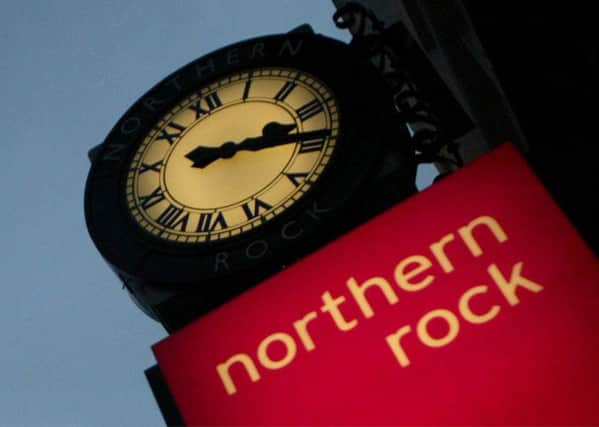Déjà vu over City’s amnesia over banking crisis


Very brief highlights of the financial crisis there, in case you’d forgotten about it. Which you hadn’t, obviously. But it’s a good time to jog the old memory, because there’s a sense that we’re entering a dangerous new phase in the post-crisis cycle.
Last week the government revealed that it is to dispose of its holding in Lloyds Banking Group and on Wednesday it will set out plans to begin doing likewise with RBS.
Advertisement
Hide AdAdvertisement
Hide AdMeanwhile, there’s been a subtle change of tone regarding bank regulation, with a growing narrative in the City that it’s time to move on from the global financial crisis.
There’s plenty more that will sound familiar to those for whom the pre-crisis years remain fresh in the memory. House prices are soaring again and in Scotland saw the biggest increase since 2007 in the year to March, according to the Office for National Statistics.
Climbing house prices will eventually form part of the Bank of England’s argument for raising interest rates again, which will spell disaster for the growing number of people on stagnant incomes already stretched by rents, mortgage payments and household bills.
What else is there? Oh yes, household debt, which increased in March at the fastest rate since 2008, according to the Bank of England. With the Centre for Social Justice estimating that nearly nine million people are over-indebted it’s no surprise that the International Monetary Fund (IMF) warned in April that the UK is among the countries most vulnerable to a repeat of the credit crunch.
Then there’s the banks, newly emboldened by the election of a Conservative government and calling for it to water down plans to ring-fence banking activities.
That proposal, set out by the Independent Commission on Banking, was aimed at addressing the too-big-to-fail issue and will involve banks separating their retail and investment arms. Now, predictably, the lobbying against the ring-fence – due to take effect in 2019 – has stepped up a notch, with former Barclays chairman David Walker claiming there’s an “urgent and compelling need for the Government to review” it.
You’ll remember where light-touch regulation got us before. Well, a good few influential voices in the City have decided that now – as the government plots massive spending cuts that will cause untold suffering (and a fair few deaths) – is the time for the so-called ‘bank bashing’ to end.
Yet as the New Economic Foundation (NEF) has pointed out, little has really been done since the crisis to reform the financial system, which remains “extremely” vulnerable to another crisis.
Advertisement
Hide AdAdvertisement
Hide AdThe warning signs are there – in house prices and personal debt, a barely reformed banking system and a fragile Eurozone – and yet to come is the risk posed by the unwinding of central bank stimulus. So while I apologise for being a bit downbeat, it’s worth talking about these things, because we all know what happens when the lessons from the past go unheeded. Well, most of us do.